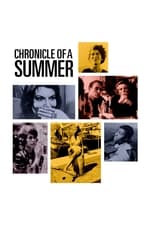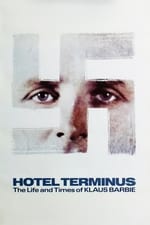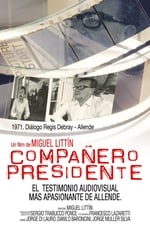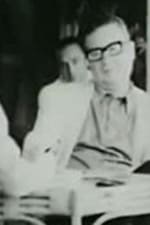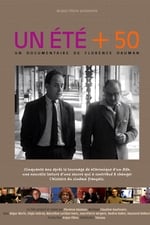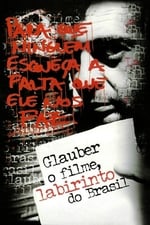Persoonlijke gegevens
Bekend van Acteren
Bekende vermeldingen 11
Geslacht Man
Verjaardag 2 september 1940 (83 jaar oud)
Geboorteplaats Paris, France
Ook bekend als
- -
Inhoudsscore
100
Ja! Ziet er goed uit!
Log in om een fout te melden
Biografie
Jules Régis Debray (born 2 September 1940) is a French philosopher, journalist, former government official and academic. He is known for his theorization of mediology, a critical theory of the long-term transmission of cultural meaning in human society, and for associating with Marxist revolutionary Che Guevara in Bolivia in 1967 and advancing Salvador Allende's presidency in Chile in the early 1970s. He returned to France in 1973 and later held various official posts in the French government.
Born in Paris, Régis Debray studied at the École Normale Supérieure as taught by Louis Althusser. He appeared as himself in the cinema verité movie Chronique d'un été by Jean Rouch and Edgar Morin in 1960. He became an "agrégé de philosophie" in 1965.
During the late 1960s he was a professor of philosophy at the University of Havana in Cuba, and became an associate of Che Guevara in Bolivia. He wrote the book Revolution in the Revolution?, which analysed the tactical and strategic doctrines then prevailing among militant socialist movements in Latin America, and acted as a handbook for guerrilla warfare that supplemented Guevara's own manual concerning the topic. It was published in Cuba in the "Cuadernos" collection by Casa de las Americas in 1967, by Maspero in Paris, in New York (Monthly Review Press and Grove Press), Montevideo (Sandino), Milan (Feltrinelli), and Munich (Trikont).
Guevara was captured in Bolivia in October 1967; on 20 April 1967 Debray had been arrested in the small town of Muyupampa, also in Bolivia. Convicted of having been part of Guevara's guerrilla group, Debray was sentenced on 17 November to 30 years in prison. He was released in 1970 after an international campaign for his release which included appeals by Jean-Paul Sartre, André Malraux, General Charles de Gaulle, and Pope Paul VI. He sought refuge in Chile, where he wrote The Chilean Revolution (1972) after interviews with Salvador Allende. Debray returned to France in 1973 following the coup by Augusto Pinochet in Chile.
After the election in France of President François Mitterrand in 1981, he became an official adviser to the Président on Foreign Affairs. In this capacity he developed a policy that sought to increase France's freedom of action in the world, decrease dependence on the United States, and promote closeness with the former colonies. He was also involved in the development of the government's official ceremonies and recognition of the bicentennial of the French Revolution. He resigned in 1988.
Until the mid-1990s he held a number of official positions in France, including an honorary counselorship at France's supreme administrative court, Conseil d'État.
In 1996, he published a memoir of his life, translated into English as Régis Debray, Praised Be Our Lords (Verso, 2007). ...
Source: Article "Régis Debray" from Wikipedia in English, licensed under CC-BY-SA 3.0.
Jules Régis Debray (born 2 September 1940) is a French philosopher, journalist, former government official and academic. He is known for his theorization of mediology, a critical theory of the long-term transmission of cultural meaning in human society, and for associating with Marxist revolutionary Che Guevara in Bolivia in 1967 and advancing Salvador Allende's presidency in Chile in the early 1970s. He returned to France in 1973 and later held various official posts in the French government.
Born in Paris, Régis Debray studied at the École Normale Supérieure as taught by Louis Althusser. He appeared as himself in the cinema verité movie Chronique d'un été by Jean Rouch and Edgar Morin in 1960. He became an "agrégé de philosophie" in 1965.
During the late 1960s he was a professor of philosophy at the University of Havana in Cuba, and became an associate of Che Guevara in Bolivia. He wrote the book Revolution in the Revolution?, which analysed the tactical and strategic doctrines then prevailing among militant socialist movements in Latin America, and acted as a handbook for guerrilla warfare that supplemented Guevara's own manual concerning the topic. It was published in Cuba in the "Cuadernos" collection by Casa de las Americas in 1967, by Maspero in Paris, in New York (Monthly Review Press and Grove Press), Montevideo (Sandino), Milan (Feltrinelli), and Munich (Trikont).
Guevara was captured in Bolivia in October 1967; on 20 April 1967 Debray had been arrested in the small town of Muyupampa, also in Bolivia. Convicted of having been part of Guevara's guerrilla group, Debray was sentenced on 17 November to 30 years in prison. He was released in 1970 after an international campaign for his release which included appeals by Jean-Paul Sartre, André Malraux, General Charles de Gaulle, and Pope Paul VI. He sought refuge in Chile, where he wrote The Chilean Revolution (1972) after interviews with Salvador Allende. Debray returned to France in 1973 following the coup by Augusto Pinochet in Chile.
After the election in France of President François Mitterrand in 1981, he became an official adviser to the Président on Foreign Affairs. In this capacity he developed a policy that sought to increase France's freedom of action in the world, decrease dependence on the United States, and promote closeness with the former colonies. He was also involved in the development of the government's official ceremonies and recognition of the bicentennial of the French Revolution. He resigned in 1988.
Until the mid-1990s he held a number of official positions in France, including an honorary counselorship at France's supreme administrative court, Conseil d'État.
In 1996, he published a memoir of his life, translated into English as Régis Debray, Praised Be Our Lords (Verso, 2007). ...
Source: Article "Régis Debray" from Wikipedia in English, licensed under CC-BY-SA 3.0.
Acteren
|
|||
|
|||
|
|||
|
|||
|
|||
|
|||
|
|||
|
|||
|
Scenario
|
|||
|

